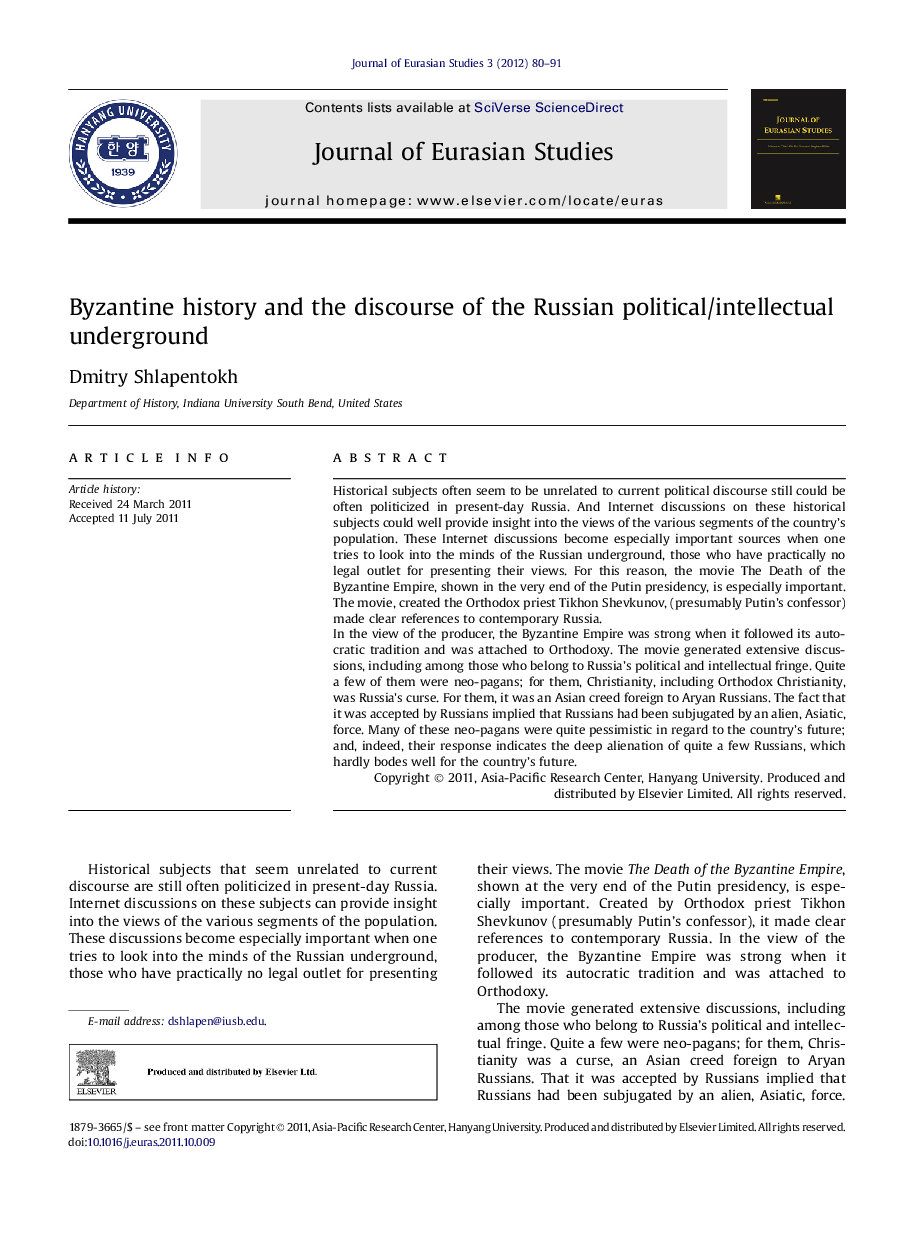| Article ID | Journal | Published Year | Pages | File Type |
|---|---|---|---|---|
| 1127318 | Journal of Eurasian Studies | 2012 | 12 Pages |
Historical subjects often seem to be unrelated to current political discourse still could be often politicized in present-day Russia. And Internet discussions on these historical subjects could well provide insight into the views of the various segments of the country's population. These Internet discussions become especially important sources when one tries to look into the minds of the Russian underground, those who have practically no legal outlet for presenting their views. For this reason, the movie The Death of the Byzantine Empire, shown in the very end of the Putin presidency, is especially important. The movie, created the Orthodox priest Tikhon Shevkunov, (presumably Putin's confessor) made clear references to contemporary Russia.In the view of the producer, the Byzantine Empire was strong when it followed its autocratic tradition and was attached to Orthodoxy. The movie generated extensive discussions, including among those who belong to Russia's political and intellectual fringe. Quite a few of them were neo-pagans; for them, Christianity, including Orthodox Christianity, was Russia's curse. For them, it was an Asian creed foreign to Aryan Russians. The fact that it was accepted by Russians implied that Russians had been subjugated by an alien, Asiatic, force. Many of these neo-pagans were quite pessimistic in regard to the country's future; and, indeed, their response indicates the deep alienation of quite a few Russians, which hardly bodes well for the country's future.
